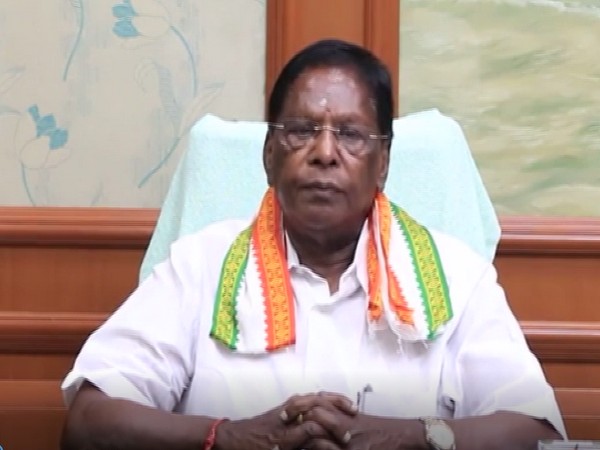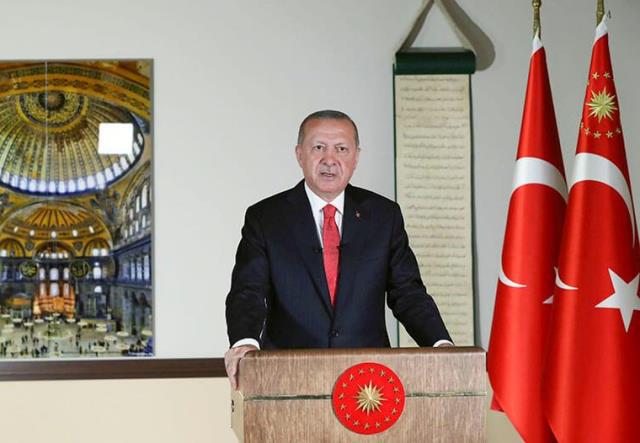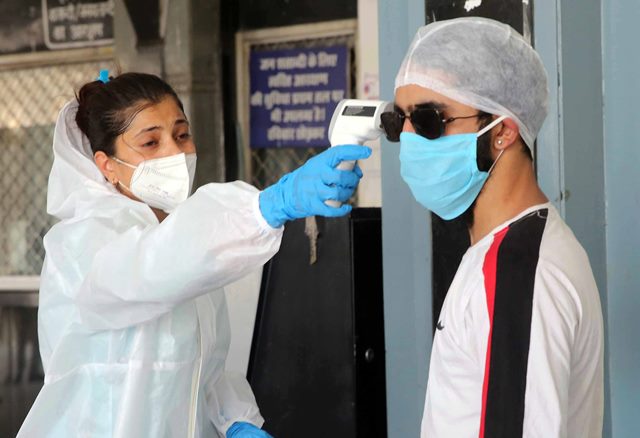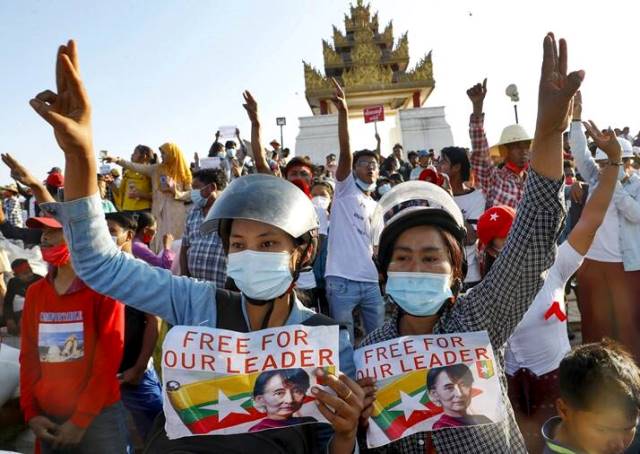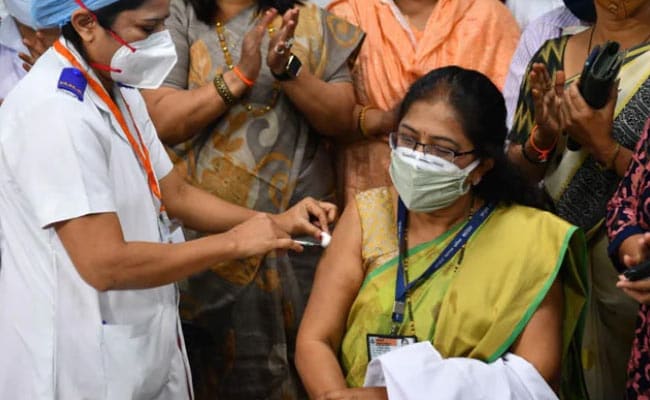Something unprecedented is happening in Myanmar. Something out-of-the-ordinary, against the repeated patterns of its own history of nightmares. The military did an unpredictable coup in the wee hours of February 1. The Junta had ruled uninterrupted for 50 years since 1962 until partial democratic reforms were initiated in 2011 in a quasi-democracy led by Aung San Suu Kyi.
After the bloodless coup on February 1, the Junta took State Counsellor Suu Kyi, President U Win Myint, and other leaders into custody. Almost 400 MPs have been reportedly kept in a government building at Nay Pyi Taw, the administrative capital of Myanmar.
Internet was shut, protests were banned, there was an information black-out, the military was out on the deserted streets, and no one knows the whereabouts of Suu Kyi. It’s yet again army rule.
So, what is that ‘something’ which is unprecedented, happening right now in Myanmar, amidst this military terror machine unleashed yet again?
It is the spontaneous mass protests, especially in Yangon and Mandalay, the biggest cities with a long history of protests – as the mass students uprising in 1988 which was brutally crushed and the non-violent ‘saffron protests’ led by Buddhist monks in 2007. Thousands of young men and women have been marching on the streets of Yangon and Mandalay, demanding freedom and democracy, defying the military. In one instance, the army removed the barricades, as students shook hands with them.
The demonstrations have been vociferous, angry and unafraid. Two persons were reportedly killed on February 20. So, has the crackdown started yet again as the rebellion spreads across Myanmar?
While being taken to an unknown place, Suu Kyi, highly popular despite the pro-military marches in recent times, was successfully able to send across the message to her people – come out on the streets, protest, defy the military and restore democracy. In the initial phase of terror, people discovered an innovative method of resistance. They banged on their utensils for hours inside their homes, while others honked car horns. This kind of ‘protest music’ was not expected.
There were more surprises in store. In a country badly affected by Covid, and in a perpetual economic crisis, with the International Monetary Fund doling out around $350 million recently, doctors, nurses and frontline health workers came out of the hospitals and declared that they are hereby refusing to work for the Junta unless democracy is restored. In their blue uniforms, male and female health workers showed the three-finger sign of protest.
The three-finger ‘salute’ is borrowed from the ‘Hunger Games’ by Suzanne Collins, whereby it is used to pay respect, express admiration, gratitude and goodwill. Now, it is a symbol against authoritarianism.
These are signs arriving as bad omen for General Aung Hlaing, leading the ‘Tatmadaw’, the army, at Nay Pyi Taw, which is a clinical, sanitised and fortified capital, surrounded by forests, far away from human civilisation, and protected by layers of security and surveillance. However, what will the Junta do when the resistance spreads in crowded towns and cities?
In the restive border areas, various ethnic groups have been fighting a dogged guerrilla war since decades, often, with alleged Chinese backing. Since Independence, they have been short-changed in a country ruled by the majority community of Bamars. (Ironically, China has strong links with the Myanmar military, including strong economic networks. Both China and Russia have opposed the UK-sponsored resolution in the UN Security Council seeking ‘restoration of democracy’ in Myanmar.)
General Hlaing has political ambitions but he has been able to camouflage it even as democracy seemed to gain ground. He was supposed to retire in July 2021, and, then, perhaps, plunge into electoral politics. The army’s political front, Union Solidarity and Development Party (USDP), which has been playing second fiddle to the National League for Democracy (NLD), once again lost the recent elections with Suu Kyi’s party winning overwhelmingly. The army anyway has 25 per cent seats reserved for them in Parliament without elections, and the crucial defence and interior ministries are controlled by it. The army has drafted the Constitution, putting severe restrictions on a civilian government.
Besides, despite Suu Kyi flexing muscle – she apparently did not meet the army General for days – the army seemed to be in an existential fix: it calls the shots, but it still plays second fiddle! The future of its entrenched business and power interests seemed to be in a flux with a new generation of youngsters having tasted the fruits and freedom of democracy; they are therefore refusing to accept the repressive ways of an ossified regime led by decadent army generals.
Amnesty International reported last year that the Myanmar Economic Holdings Limited (MEHL), with its business controlled by the army, made a whopping amount of $18bn between 1990 and 2010. Apparently, much of the revenue was pumped back into the military budget – with the General having crafted lucrative international arms deals.
There are reports that there is more to the coup then just political power. The General and his family allegedly have huge business stakes. Observers say, the coup is also an attempt to consolidate that, and the vast business interests of the army.
Another significant reason for the coup is the simmering shadow of the Rakhine genocide – the massacres and mass rapes unleashed by the army against the Rohingyas which compelled 700,000 of them to flee to Cox Bazaar in Bangladesh, amidst huge international criticism. The General is directly held responsible for the genocide, and he has faced sanctions earlier. Post-retirement, powerless, he possibly feared the consequences of the international justice system breathing down his neck. Hence, his desperation.
The ‘8888 uprising’, which started on 08.08.1988, led by students of ‘Rangoon’, and joined by monks, mothers, doctors and civilians, was brutally crushed. As for Suu Kyi, she was the darling of the West during her long years under house arrest after her party won the elections in 1990 with 81 per cent of votes, which was again followed by an army crackdown. Since 2011, she has ruled, consolidating her party, her charisma and power, under the shadow of the army, as the most popular symbol of liberal democracy in Myanmar.
The aura however disappeared after she was seen to be in a sinister alliance with this very General after the Rohingya genocide. She actually defended the genocide in an international court of justice. So much so, there was a world-wide campaign to strip her of the Noble Peace Prize.
It’s a dark irony, that the same General has now put her behind bars! And on what charge – a ridiculous Export and Import law for possessing Walkie Talkies!
For an iconic woman leader, daughter of the legendary Aung San, who created this very army, this is history repeating itself once again, as a nightmare. Now, imprisoned in an unknown location, she is perhaps hoping against hope, that international sanctions led by the US, and the mass protests led by the young, will turn the tide much before the end of the year, when the General has promised fresh polls.
Meanwhile, while the three-finger salute plays out on the streets, Myanmar yet again waits with intense hope and anticipation – fingers crossed.
